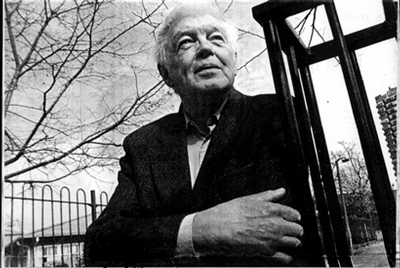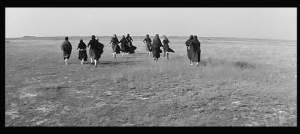Miklós Jancsó’s The Round Up is a film about power. It’s set in Hungary in the 1850s but its themes are timeless, thus its inclusion here. More specifically, it’s about how cruel power can be, and how arbitrary, how pointless. Its title in Hungarian is Szegénylegények which translates as “The Hopeless Ones” is perhaps a better indication of the film’s intentions. The film’s only protagonists are Hungarian soldiers and their prisoners, former revolutionaries now turned bandits (the slippage between the two is never made quite clear). It’s set in a penal stockade on the plains of Hungary. The film’s use of landscape is incredible – these vast, flat spaces dominate, and become oppressive, and humans are reduced in scale. A prisoner runs off into this space at one stage, and it seems a hopeless gesture, a plunge into the void. The actors become ant-like and normal human desires and intentions are similarly reduced. The stockade is utterly startk and bleak, whitewashed, without a single human touch or gesture of comfort anywhere.
anarchism
Colin Ward – Everyday Anarchist
I once described Colin Ward to a friend as “an anarchist who builds adventure playgrounds” which seems as good a starting point as any for talking about his life and ideas (she replied “he’s my new favourite person”). Ward was a self-educated anarchist polymath who spent most of his life working in planning, architecture and social policy. This career might seem to be in contradiction with anarchism, if one thinks of anarchy as solely guys in black hoods breaking Starbucks windows, but perhaps anarchism is a little richer than this? An anarchist perspective allowed Ward to arrive at any number of novel solutions to social problems, some of which I will touch on briefly below. The point about “adventure playgrounds here” is also telling – one to the reasons I am attracted to his work is his ability to place children and their needs for fun, stimulation and exploration of their environments at its centre. Children are often seem as a peripeheral annoyances in urban life, if they’re not outright demonsied. Any vision of social life that puts them back at its centre is worth exploring.

